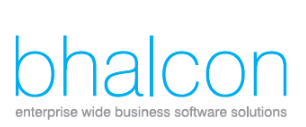Blockchain Technology in Business
What is Blockchain?
Blockchain is a distributed ledger technology. Initially developed as the technology to support crypto currencies like Bitcoin and others, it has now outgrown that initial objective.
In essence, Blockchain is a network of computers, known as miners, who enable digital transactions. It is a peer-to-peer, anonymous network. Blockchain enables the building of a distributed database of transactions with a set of rules as to how the ledger gets appended, achieved by distributed participants in the system with agreement. It is a growing list of records, called blocks, which are linked using cryptography. Each block contains a cryptographic hash of previous block, a timestamp and transaction data. The Blockchain keeps track of all transactions in a distributed way, where all participants have a copy of the ledger and can potentially validate any transaction. It records and stores every transaction or exchange of data that occurs in the network, eliminating the need for a central authority and providing greater transparency.
Blockchain in Business Applications
While Blockchain potentially impacts many industries, the characteristics and cost-efficient nature of validating and permanently date-and-time stamping transactions means it is very much applicable to payments, to the transfer of assets, to the establishment of smart contracts etc. Here is an example of Supply-chain automation with Blockchain.
Supply-chain management with Blockchain
Let’s look at a scenario with Blockchain technology for an Inventory management system of a company.
When inventory management system detects a low stock on an item in demand, it could automatically issue a purchase order to the supplier. The supplier would automatically and digitally sign the contract, ship the goods and send an invoice, which is also stored on the Blockchain. As a buyer, your company digitally signs the invoices with a promise to pay as soon as the goods are received. The payment can then be automatically executed as soon as you sign that the goods have been received.
SMEs could achieve major improvements in the management of their inventories and streamline management of warehouses with reduction in paperwork, cost reduction and improved efficiency.
Blockchain can also be implemented in various other applications like money transfers, smart contracts, notary, gift cards, loyalty programs, etc.
Overall, the Blockchain network facilitates the interworking between IT systems, financial systems and ledgers.
